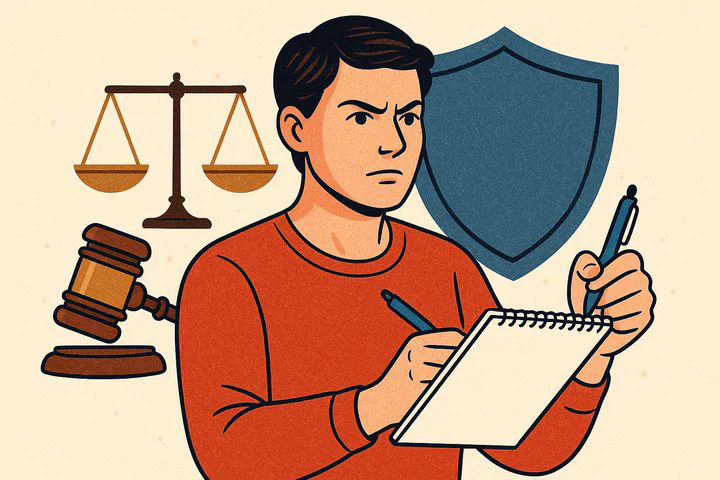Understanding Police Reports and Court Witnesses

Understanding Police Reports and Court Witnesses
Navigating the legal system can feel scary, especially when you are doing it to keep your family safe. Maybe you are worried about a fight with an ex-partner, damage to your home, or a threat made in front of your kids. In these moments, knowing how to handle a police report and what happens in court can make a huge difference. This guide walks you through each step so you can feel calm, prepared, and supported.
Filing a Police Report: What You Need to Know
A police report is a written record of what happened. It can protect you and your children if things later end up in court. Judges, lawyers, and a police report court witness will look at this report to see the facts, so every detail counts.
How to file a police report:
- Bring a photo ID and any proof, like pictures, texts, or doctor notes.
- Tell the officer the story in order—who, what, when, where, and how.
- Ask for the report number before you leave the station.
- Pick up a copy as soon as it is ready.
Before you leave the station, read the report if possible. If a date or name is wrong, ask the officer to fix it. Keep your copy in a safe place with your other papers in case you went to court later.
Why it matters: a clear report shows you acted quickly, and it helps the judge see your story has stayed the same from day one.
Navigating the Court Process
Sometimes a case moves forward, and when we finally went to court many parents say the hardest part was not knowing what was next. Picture the courtroom like a school classroom: the judge sits up front, lawyers speak, and each person shares their side. The judge listens to the police report court witness and looks at all the papers you bring.
How to get ready:
• Gather proof—your police report, texts, emails, photos, and bills—and put them in date order.
• If you have a lawyer, give these papers to them early so they can plan.
• Practice what you want to say out loud. Keep sentences short and stick to facts.
• Use calm tools, like slow breathing or squeezing a stress ball, to steady your nerves.
• If allowed, bring a trusted friend or family member for support.
Remember, the judge wants fairness. Clear facts, steady words, and help from a police report court witness all work together to show the truth.
The Role of Witnesses in Court Proceedings
A witness is someone who tells the judge what they saw, heard, or know. When a police report court witness speaks, their words can confirm your story and fill in missing pieces.
If you are called to testify:
• Read the police report before court so your memory is fresh.
• Practice answering “who, what, when, where, and how” questions with a friend.
• Dress neatly, look at the judge, and speak loud enough to be heard.
• Tell only what you know is true.
One mom said she felt shaky until her own witness testified and backed up every detail. Honest words, plus the facts in the police report, help the judge make a fair choice for your family.
Key Takeaways
• A solid police report is the first step in protecting yourself and your children.
• Careful prep—collecting proof, practicing what to say, and leaning on support—can calm fears about court.
• Clear, honest testimony from you or a trusted police report court witness can guide the judge to the right decision.
By understanding how to file a police report and what to expect if you go before a judge, you are already taking brave steps to safeguard your family. You are not alone—reach out to friends, counselors, or legal helpers whenever you need extra support.